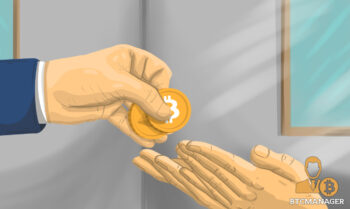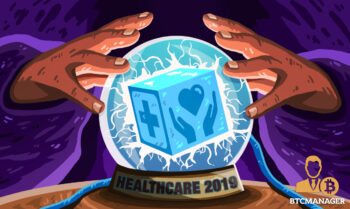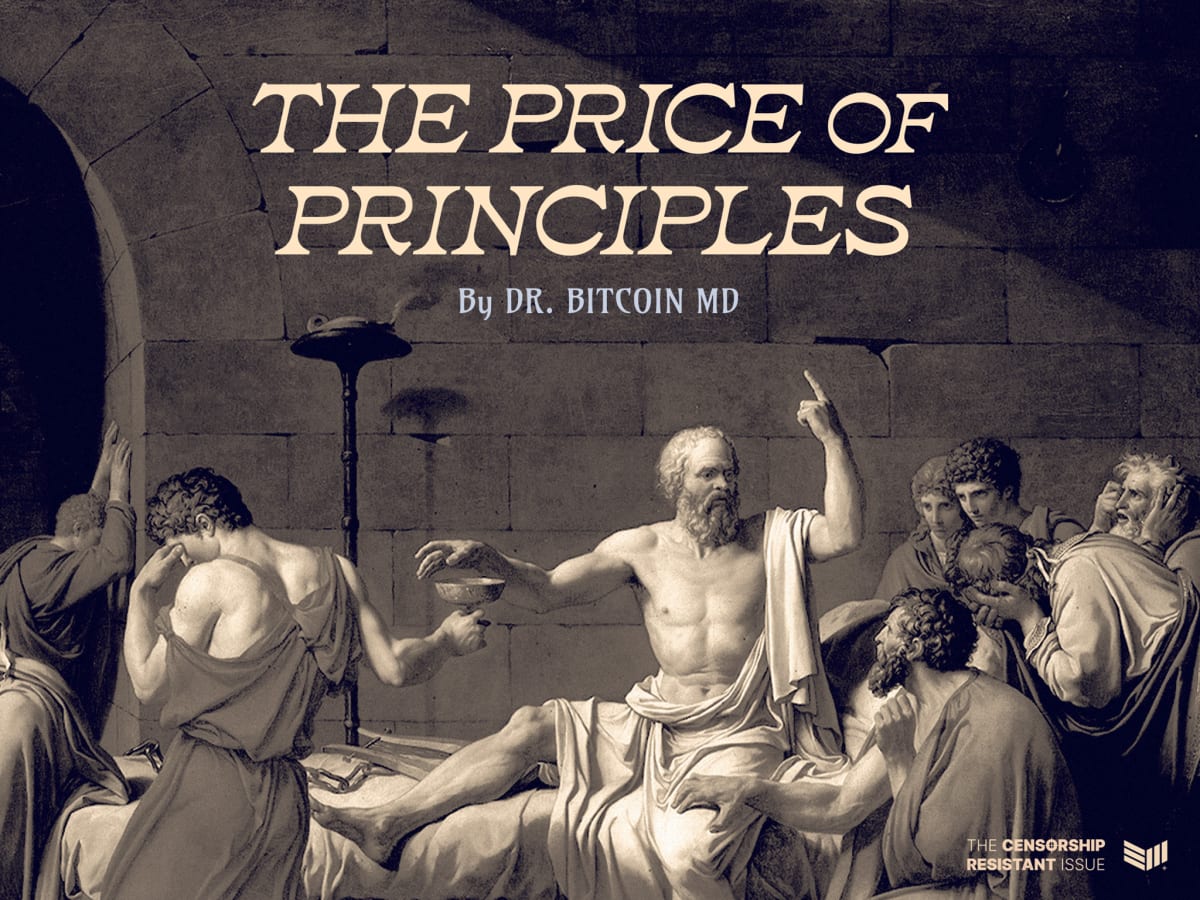2023-1-12 16:00 |
If healthcare providers were to adopt bitcoin, patients would see free-market and affordability improvements.
This is an opinion editorial by Robert Hall, a content creator and small business owner.
Nothing is more critical to long-term health than having access to healthcare when needed. But every jurisdiction around the world implements this process differently. Many countries socialize the cost of healthcare through the government on a sliding scale from total government control to private market healthcare, with a sprinkle of government-provided health insurance for the poor and the elderly.
In the United States, we primarily have a private healthcare system. If you have the money, you can purchase healthcare services from any service provider you like. But the problem in America isn't a lack of healthcare providers; it is how healthcare services are paid for.
When you see your doctor, you don't know how much you will spend. But if you think about this for a second, it is very odd. Can you think of any other service for which you don't know how much you will spend before your visit? Hell, even some sort of estimate would be nice, right?
When you arrive at the doctor's office, you typically hand over your health insurance card and pay a copay. Do you know what a copay or coinsurance is and how it functions? Not many people do. All that most people know is that you hand over a card, pay a nominal fee and receive services.
After services are rendered, your doctor's office will send a claim to your health insurance company to be paid out. Once the claim has been paid out, you must pay the rest if there is a balance. Typically this happens months later, and by this point, you may not have the money to pay the balance.
How insane is this? Not only are you hit with a surprise bill that has yet to be budgeted for, but healthcare providers are also having difficulty finding qualified staff to process payments. The government also passed the No Surprises Act last year, making receiving payments even more cumbersome for healthcare providers.
Why do we need third parties to pay medical bills in the first place? Imagine having your car insurance company pay to fill up your gas tank. Weird, right?
Did you know that in 2021, 20% of Americans had medical debt, and 58% of bills in collections were for medical debt?
As you can see, people are struggling with medical debt, which has a cascading effect on healthcare providers. Healthcare providers are losing revenue when their patients don't pay and have to raise prices to make the difference. Does the healthcare consumer see a rise in prices directly? No, the health insurance companies see the increase in cost to provide services.
This increase in the price of healthcare goods and services is reflected in the price that is paid for health insurance. The typical American family spends $22,221 on health insurance every year. I don't know about you, but this is a lot of money. Imagine what you could do with $22,221 in your pocket.
The situation becomes troubling when considering the federal government and how much it pays for healthcare.
Medicare is projected to be insolvent by the year 2026. That is a mere three years from now, yet no one is talking about this in the media, and no one significantly campaigned on this during the election. Medicare provides health coverage for 63 million seniors and disabled Americans.
What will they do when the government runs out of money to provide healthcare coverage to this population? As of 2021, growth in Medicare spending had averaged 7.6% for the previous five years and will not be slowing down anytime soon. This is a slow-motion train wreck amid an already broken healthcare system.
The system is broken and needs to change before it implodes and takes everyone down with it. How can we transform the healthcare system to one based on free market principles while helping healthcare service providers grow revenue and lower costs for their patients?
Bitcoin To The Rescue SourceImagine a world where you know how much your medical bills will be before services are rendered. Imagine a world where you could compare the prices of different medical procedures in the same way that you can when you go to the grocery store or shop on Amazon.
Bitcoin makes this world possible. If the world adopted a Bitcoin standard, the average consumer would have more purchasing power to pay for their medical bills. The deflationary nature of Bitcoin makes this possible.
There is only 21 million bitcoin that will ever be created. The longer you hold it, the more it will increase in value. The more value it accrues, the more healthcare services it can be used to purchase. The increase in value will entice more healthcare providers to enter the market and offer their services for bitcoin. More competition between healthcare providers means more access to healthcare, better customer service and lower prices for all. Are you seeing how this all works now?
Healthcare providers would be incentivized to list the prices of their services in bitcoin to attract new patients to their practice.
Typical health insurance, where the insurance companies pay the bill for simple office visits, would disappear on a Bitcoin standard. There would be no need for it, as consumers would have enough purchasing power to pay their bills at the time of service.
Lightning Network: A Boon To Healthcare Providers SourceRunning a doctor's office is a business. There are overhead costs that have to be paid to stay in business. Rents must be paid, employees must be paid and supplies must be purchased.
Medical practices can use the Lightning Network to receive instant settlement from their patients and reduce confusion over medical billing. Adopting Lightning payments would boost revenue and improve cash flow.
This cash flow could be used to invest in the business, buy better equipment and hire more staff. Not only does this benefit the company, but better equipment also leads to better healthcare outcomes, and more staff leads to better customer service. High-quality customer service will increase profitability over the long term.
According to a recent study, healthcare providers that provide “excellent” customer service reported a net margin that was 50% higher than those that provide “average” customer service.
The Lightning Network will also lower transaction costs for medical practices. Payment processing takes a big chunk of the bottom line for healthcare providers and provides very little utility. The average payment processor charges 1.5% to 3.5%, plus they often institute other confusing formulas to bilk companies out of their money.
Healthcare providers could save money on transaction fees if they switched to the Lightning Network. The average fee for sending a Lightning payment is .01%! Plenty of Lightning nodes don't charge a fee to send a payment. Traditional payment processors simply can't compete with this.
Healthcare providers should switch to a Bitcoin standard and use the Lightning Network as soon as possible, and watch their businesses transform. It will be good for them, their patients and the economy.
This is a guest post by Robert Hall. Opinions expressed are entirely their own and do not necessarily reflect those of BTC Inc or Bitcoin Magazine.
origin »Bitcoin price in Telegram @btc_price_every_hour
Bitcoin (BTC) на Currencies.ru
|
|































